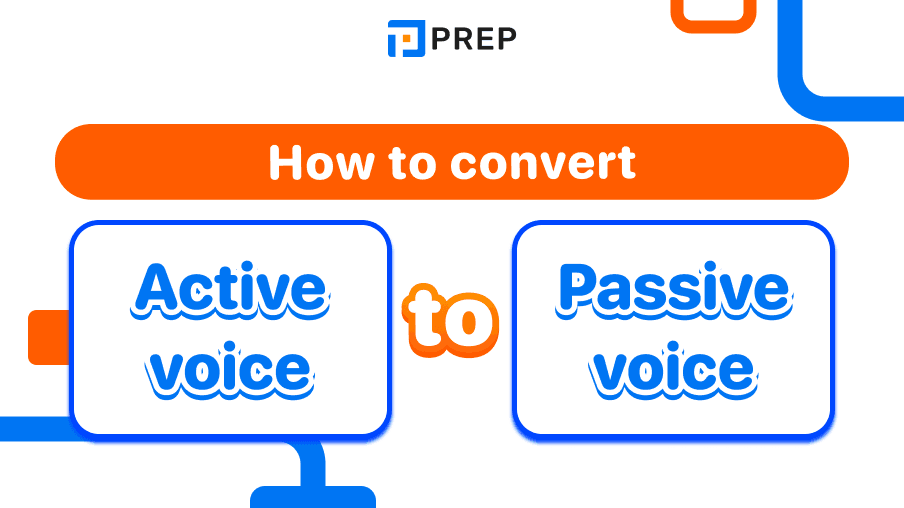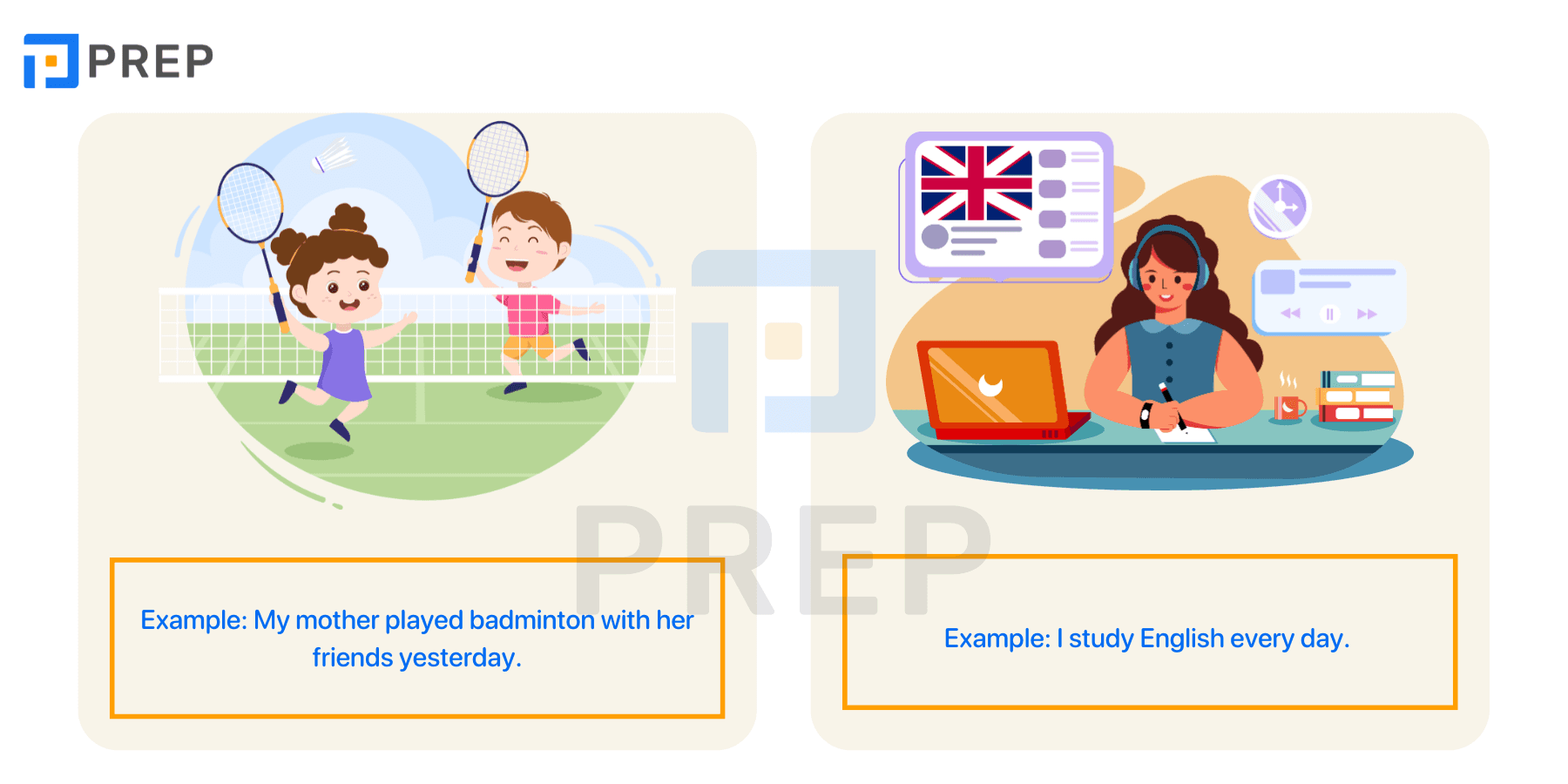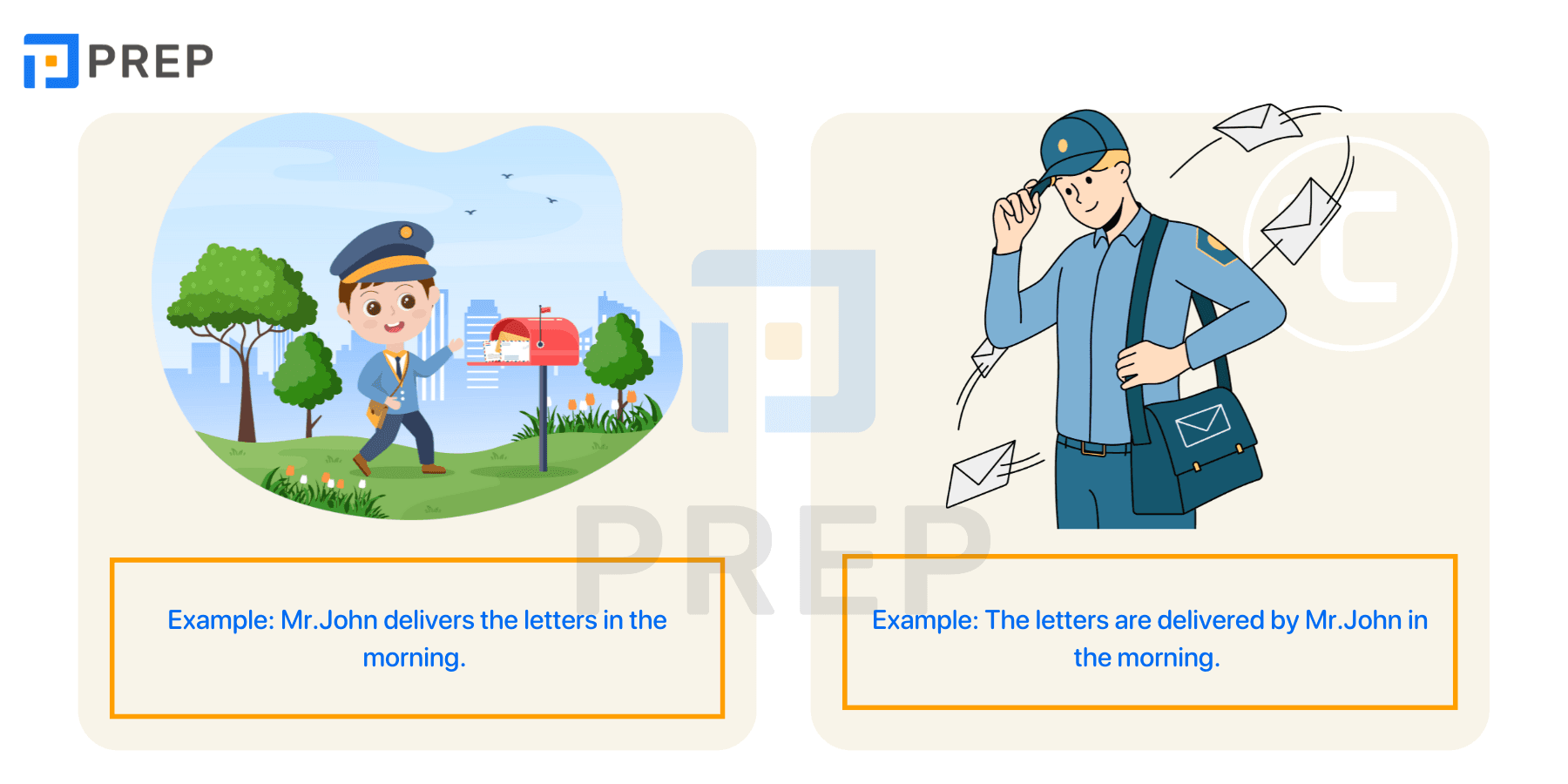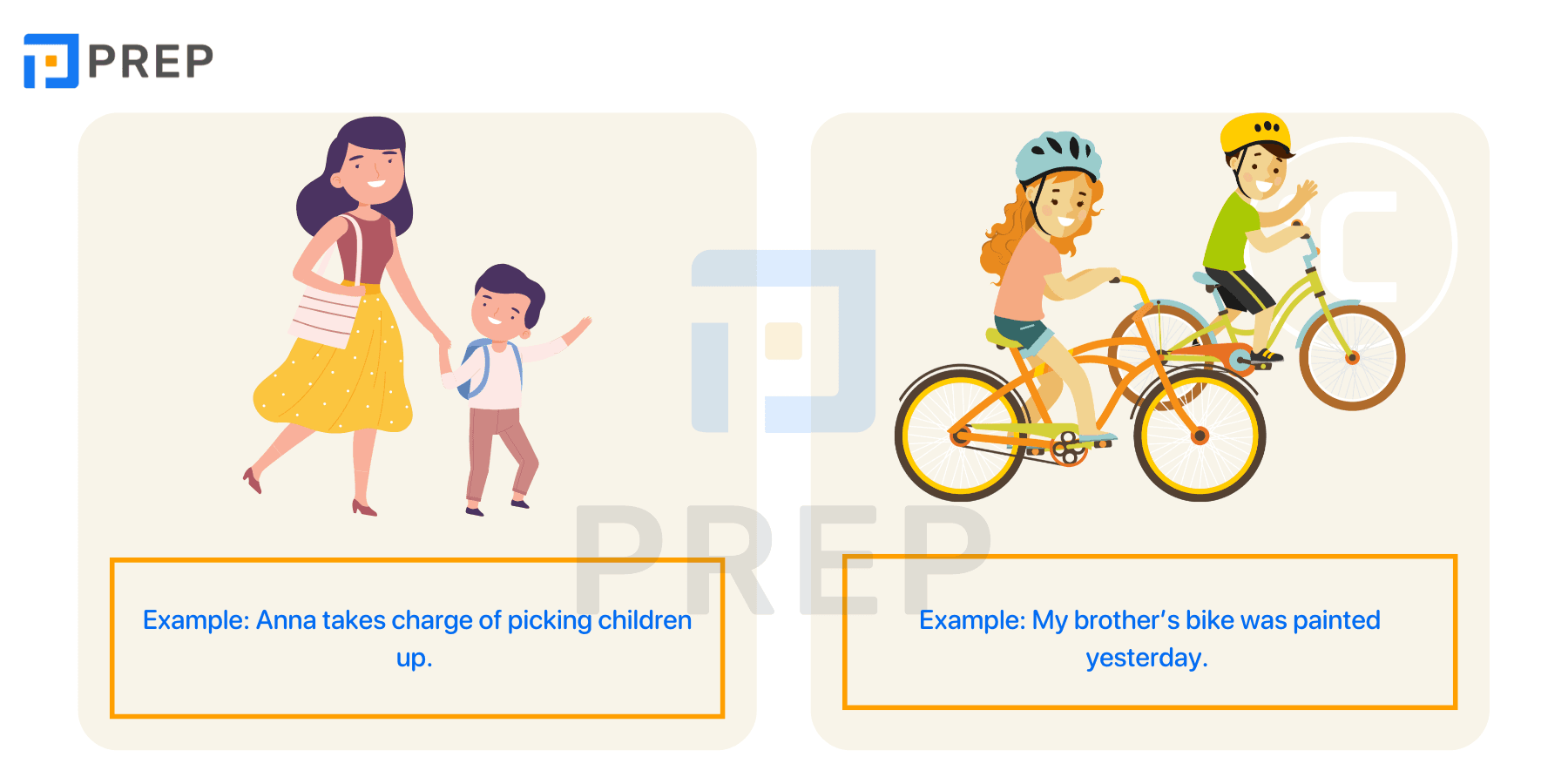Active Voice in English: Master Clear, Direct Communication for Powerful Writing
Mastering active voice in English transforms weak, wordy sentences into powerful, direct communication that engages readers and builds trust. While passive voice has its place in formal writing, active voice in English creates clarity by placing the action performer at the front of sentences, eliminating confusion and strengthening your message across business, academic, and creative contexts.
- I. What Exactly Is Active Voice?
- II. Active vs. Passive: Spotting the Difference & When to Use Each
- III. How to Convert Active Voice to Passive Voice
- IV. Transforming Passive to Active: Step-by-Step and Avoiding Pitfalls
- V. Unleash the Power: Applying Active Voice in Your Writing
- VI. Supplemental Content: Active Voice FAQs
- VII. Exercises on Active voice in English with answers

I. What Exactly Is Active Voice?
1. Active Voice Defined Simply
Active voice in English occurs when the subject performs the action expressed by the verb. The structure flows naturally from actor to action to recipient, creating sentences that mirror how we naturally think and speak. Unlike passive constructions that hide responsibility, active voice in English clearly identifies who performs each action.

2. The Active Voice Formula
The foundation follows a straightforward pattern: Subject + Verb + Object (when needed). This arrangement creates logical flow because readers encounter information in the order they expect.
Please examine the examples below:
|
Tense |
Active Voice Example |
Key Elements |
|
Simple Present |
"Sarah writes reports daily" |
Subject + Action verb + Object |
|
Simple Past |
"The team completed the project" |
Clear actor + Strong past verb |
|
Present Perfect |
"Students have mastered the concepts" |
Achiever + Accomplishment verb |
|
Future |
"The director will announce results tomorrow" |
Decision-maker + Action verb |
II. Active vs. Passive: Spotting the Difference & When to Use Each

1. Passive Voice Defined Simply
Passive voice reverses the natural order by making the object become the subject. Instead of focusing on who performs the action, passive voice emphasizes what receives the action, often burying the actual performer.
2. Spotting Passive Voice: Key Indicators
Three clear signs reveal passive voice construction:
-
Forms of "to be" (is, am, are, was, were) followed by past participles
-
Past participle verbs without clear actors
-
"By" phrases that identify the performer as an afterthought
3. Active vs Passive Voice Comparison
|
Aspect |
Active Voice |
Passive Voice |
|
Subject Role |
Performs the action |
Receives the action |
|
Clarity Level |
Immediate and direct |
Often unclear or wordy |
|
Word Count |
Generally fewer words |
Usually more words needed |
|
Responsibility |
Clear accountability |
Often obscured |
4. When to Use Passive Voice
Use passive voice strategically when:
• The action recipient matters more than the performer (scientific procedures)
• The actor remains unknown or irrelevant ("Mistakes were made")
• Academic writing requires objectivity and focus on results
III. How to Convert Active Voice to Passive Voice
You can follow PREP's instructions below to change active voice to passive voice in English sentences.
-
Step 1: Determine which item in the active voice sentence will be the subject of the passive voice statement.
-
Step 2: Identify the active voice tense and then change the verb to the passive voice form.
- Step 3: Put the word "by" before the object in the passive voice to change active to passive voice effectively. Note that you can omit words like "them," "people," and similar terms for unidentified subjects.

The following table provides formulas for converting active voice to passive voice in several English tenses:
|
Tense |
Active voice |
Passive voice |
|
Present Simple |
S + V(s/es) + O |
S + am/is/are + V3 |
|
Present Continuous |
S + am/is/are + V-ing + O |
S + am/is/are + being + V3 |
|
Present Perfect |
S + have/has + V3 + O |
S + have/has + been + V3 |
|
Present Perfect Continuous |
S + have/has + been + V-ing + O |
S + have/ has been being + V3 |
|
Past Simple |
S + V(ed/Ps) + O |
S + was/were + V3 |
|
Past Continuous |
S + was/were + V-ing + O |
S + was/were + being + V3 |
|
Past Perfect |
S + had + V3 + O |
S + had + been + V3 |
|
Past Perfect Continuous |
S + had + been + V-ing + O |
S + had been being + V3 |
|
Future Simple |
S + will + V-infi + O |
S + will + be + V3 |
|
Future Perfect |
S + will + have + V3 + O |
S + will + have + been + V3 |
|
Be going to |
S + am/is/are going to + V-infi + O |
S + am/is/are going to + be + V3 |
|
Future Perfect Continuous |
S + will + have + been + V-ing + O |
S + will have been being + V3 |
|
Modal verbs |
S + modal verbs + V-infi + O |
S + modal verbs + be + V3 |
Key Considerations for English Passive Voice Formation:
-
Verbs that don't take direct objects (intransitive verbs) cannot form passive constructions. Example: My mother's leg hurts.
-
Sentences where the subject actively performs the action cannot be transformed when you change active voice to passive voice. Example: Anna takes charge of picking children up.
-
The structure "to be/get + past participle" doesn't always indicate passive meaning in English - it may describe a state or condition the subject experiences, or an action the subject performs themselves. Example: John got promoted to manager last month.
-
When forming passive voice sentences, the auxiliary verb "to be" undergoes the most significant changes in tense compared to its active voice counterpart. Consider these active voice in English and passive voice comparisons:
-
My brother will paint his bike red tomorrow. ➞ My brother's bike will be painted tomorrow.
-
My brother painted his bike red yesterday. ➞ My brother's bike was painted yesterday.
IV. Transforming Passive to Active: Step-by-Step and Avoiding Pitfalls
1. The Active Voice Transformation Process
Converting passive to active voice follows these steps:
-
Identify the actual performer of the action
-
Locate the main action verb
-
Determine what receives the action
-
Rearrange using Subject + Verb + Object pattern
-
Eliminate unnecessary "to be" verbs
-
Verify clarity of who does what
2. Passive to Active Voice Transformation Examples
|
Passive Construction |
Active Transformation |
|
"The report was written by the analyst" |
"The analyst wrote the report" |
|
"Decisions are made by the committee" |
"The committee makes decisions" |
|
"Errors were found in the data" |
"Researchers found errors" |
V. Unleash the Power: Applying Active Voice in Your Writing
Active voice in English transforms communication across different contexts:
Business Writing: Creates accountability and urgency. "Sales increased by 15%" claims ownership versus hiding behind "A 15% increase was achieved."
Academic Writing: Strengthens authority with "This study reveals correlations" instead of "Correlations were revealed," while respecting conventions for methodology sections.
Creative Writing: Maintains engagement through vivid scenes. "Margaret decided to leave" connects readers emotionally better than "The decision to leave was made."
VI. Supplemental Content: Active Voice FAQs
Is active voice always better? Active voice in English provides superior clarity in most situations, but passive voice serves specific purposes in formal, scientific, and diplomatic writing. Choose consciously based on communication goals.
What makes verbs "strong"? Strong verbs express specific actions rather than general states. Use "achieved," "accomplished," or "delivered" instead of "was successful."
Which styles benefit most? Business correspondence, journalism, creative writing, and instructional materials gain significant power from active voice constructions.
How does it affect readability? Active voice in English improves readability by reducing word count, clarifying relationships, and following natural thought patterns.
VII. Exercises on Active voice in English with answers
To better understand Active voice in English, let's complete the exercise section below with PREP!
1. Exercises
Exercise 1: Change the Sentences from Active Voice to Passive Voice
-
The chef prepares the meals every morning.
-
Lisa mailed the invitation yesterday.
-
The manager will announce the results soon.
-
They are painting the house this week.
-
Someone has broken the window.
Exercise 2: Verb Conjugation – Fill in the Correct Verb Form
-
The documents __________ (print) before the meeting.
-
James usually __________ (take) the bus to school.
-
The novel __________ (write) in 1954.
-
I __________ (not finish) my homework yet.
-
All the tickets __________ (sell) out quickly.
-
Sarah __________ (clean) the kitchen when I arrived.
-
The results __________ (not announce) until next week.
-
My mom __________ (bake) a cake for my birthday last night.
-
The walls __________ (paint) at the moment.
-
They __________ (not allow) to enter the building.
2. Answer Key
Exercise 1: Passive Voice Conversions
-
The meals are prepared every morning by the chef.
-
The invitation was mailed yesterday by Lisa.
-
The results will be announced soon by the manager.
-
The house is being painted this week by them.
-
The window has been broken by someone.
Exercise 2: Verb Conjugation
-
are printed
-
takes
-
was written
-
have not finished
-
were sold
-
was cleaning
-
will not be announced
-
baked
-
are being painted
-
are not allowed
Understanding active voice in English represents the first step toward mastering clear communication. Real transformation occurs when you consciously choose active constructions in daily writing. Start by reviewing recent work to identify passive patterns, then practice converting key sentences. Focus on clarity and impact as your ultimate goals for building trust and connecting through shared understanding with active voice in English.

Hi I'm Chloe, and I am currently serving as an Product Content Administrator at Prep Education. With over five years of experience in independent online IELTS study and exam preparation, I am confident in my ability to support learners in achieving their highest possible scores.
Comment
Premium content
View allPersonalized roadmap
Most read












